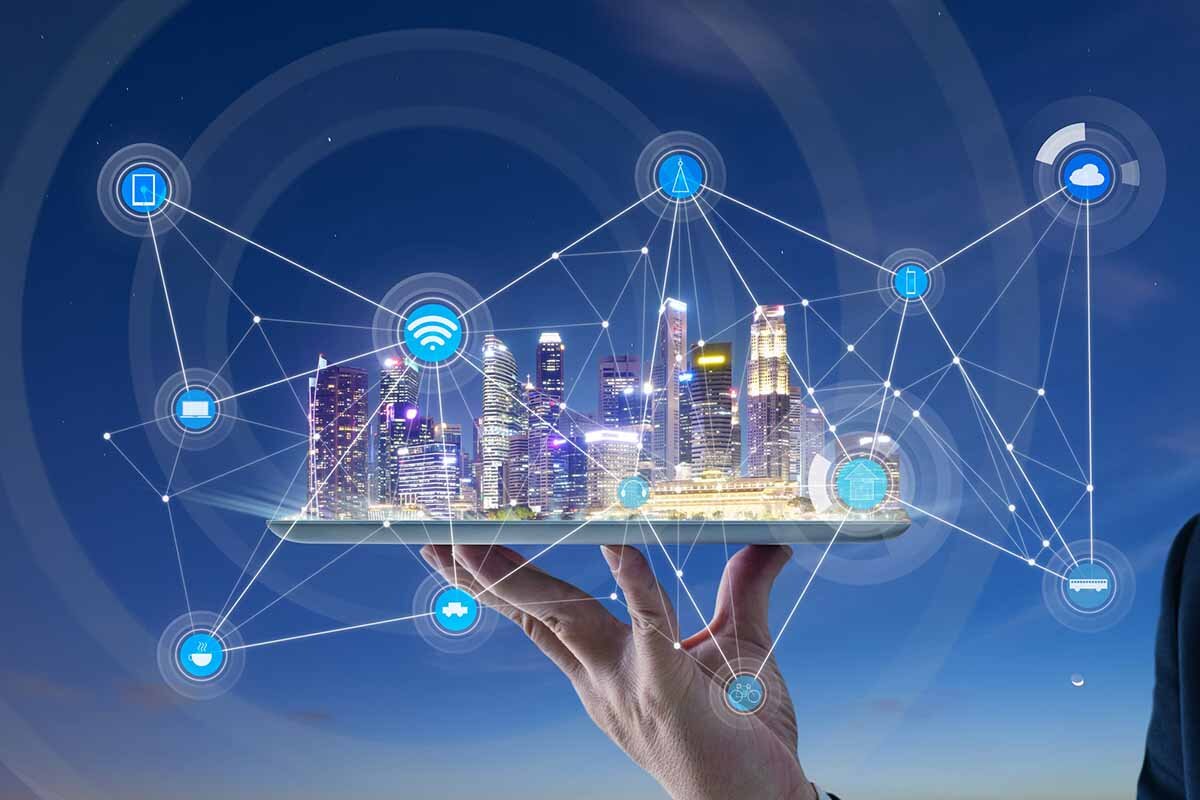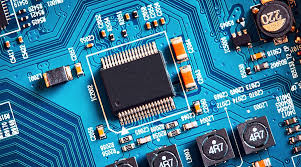Blog
The Future of Technology & Electronics: Innovating for a Smarter, Connected World!

In the fast-paced world we live in, technology and electronics have become the driving forces behind nearly every industry and aspect of daily life. From the smartphones we carry in our pockets to the artificial intelligence that powers our homes, the tech world is constantly evolving, offering new gadgets, solutions, and experiences. As we dive deeper into the 21st century, the boundaries of what’s possible seem endless, and every day brings a new breakthrough that shapes our lives in profound ways. In this blog post, we will explore some of the most exciting innovations in technology and electronics, discuss the trends that are transforming the future, and look at how these advances are making our world smarter, more efficient, and more connected than ever before.
The Power of Connectivity: Welcome to the Internet of Things (IoT)
One of the most exciting developments in recent years has been the rise of the Internet of Things (IoT). IoT refers to the network of devices, from household appliances to industrial equipment, that are connected to the internet and can communicate with each other. These devices collect and share data, enabling smarter decision-making, more efficient operations, and enhanced user experiences.
At home, IoT-enabled devices like smart thermostats, lights, refrigerators, and security systems allow users to control their environment with just a tap of a screen. In healthcare, IoT-connected wearables like fitness trackers and smartwatches monitor heart rate, sleep patterns, and physical activity, providing valuable insights into our health. As more and more devices become connected, the potential for IoT to revolutionize industries like healthcare, agriculture, transportation, and manufacturing is immense. The seamless flow of data from device to device allows us to create smarter systems that are more energy-efficient, cost-effective, and user-friendly.
Artificial Intelligence: The Brain Behind the Machines
Artificial intelligence (AI) is no longer just a buzzword – it’s becoming an integral part of everyday life. From the virtual assistants on our smartphones to the algorithms that recommend movies on streaming platforms, AI is helping us make smarter decisions and improving our experiences across various industries.
In healthcare, AI is being used to analyze patient data and assist in diagnosing diseases, while in retail, it’s transforming the customer experience by personalizing product recommendations and improving inventory management. The introduction of machine learning and deep learning algorithms allows computers to continuously improve and learn from new data, making them more intelligent and capable over time.
The most exciting aspect of AI is its potential to revolutionize entire industries, from automating repetitive tasks to solving complex problems that were once thought impossible. From self-driving cars to AI-powered chatbots and language translation tools, we’re only scratching the surface of what’s possible. AI will undoubtedly play a central role in shaping the future of technology and electronics.
The Evolution of Consumer Electronics: Gadgets That Simplify Life
Consumer electronics have come a long way since the days of bulky televisions and wired telephones. Today’s gadgets are sleek, powerful, and packed with features that were once unimaginable. The smartphone, for example, has evolved into a portable powerhouse, capable of handling everything from communication to entertainment, work tasks, and even health monitoring.
But the rise of wearable technology is perhaps one of the most exciting developments in consumer electronics. Smartwatches, fitness trackers, and augmented reality (AR) glasses are enabling users to interact with technology in entirely new ways. Smartwatches can monitor heart rate, track workouts, and even send text messages – all from your wrist. Meanwhile, AR glasses are changing the way we experience the world around us by overlaying digital information on the physical world.
Other gadgets, such as smart speakers and virtual assistants like Amazon’s Alexa, Google Assistant, and Apple’s Siri, are quickly becoming household staples, helping us perform everyday tasks with voice commands. These innovations are making life easier and more efficient, allowing us to stay connected and organized without lifting a finger.
5G Technology: A Game-Changer for Connectivity
The rollout of 5G networks is poised to transform how we connect to the internet. With speeds up to 100 times faster than 4G, 5G will provide lightning-fast download speeds, ultra-low latency, and the ability to support a massive number of devices simultaneously. This technology will enable smart cities, improve autonomous vehicle performance, and unlock the full potential of IoT.
For industries, 5G will facilitate real-time data sharing, making it possible for remote surgeries, virtual reality experiences, and immersive gaming to become the norm. As 5G becomes more widely available, it will also contribute to the development of augmented reality (AR) and virtual reality (VR) applications, which have the potential to revolutionize fields like education, entertainment, and even remote work.
The impact of 5G extends beyond consumer applications. It will also enhance manufacturing, supply chain management, and logistics, enabling businesses to operate more efficiently and with greater precision. As 5G technology expands globally, it will pave the way for future innovations and help create an increasingly connected world.

Sustainability and the Green Tech Revolution
With environmental concerns at an all-time high, the technology and electronics industries are embracing sustainability like never before. Green technology is emerging as a solution to reduce the environmental impact of electronic devices, data centers, and manufacturing processes. Companies are prioritizing energy-efficient designs, recyclable materials, and sustainable manufacturing practices to reduce electronic waste and energy consumption.
Renewable energy solutions like solar panels and wind turbines are being integrated into the tech industry, powering everything from home devices to large data centers. Furthermore, the rise of electric vehicles (EVs) and battery technology is playing a critical role in reducing carbon footprints. As electric cars and trucks continue to gain popularity, the development of more efficient batteries and charging infrastructure will be key to the future of transportation.
In addition, the use of technology to monitor and reduce emissions in industrial sectors is contributing to global sustainability efforts. From smart grids to energy-efficient buildings and carbon capture technologies, the integration of green tech is helping create a more sustainable future for the planet.
The Future of Tech: Trends to Watch
As we look to the future, there are several trends in technology and electronics that are bound to change the way we live, work, and interact with the world around us:
- Quantum Computing: Quantum computers have the potential to revolutionize fields such as cryptography, drug discovery, and material science by solving problems that are currently beyond the reach of classical computers.
- Blockchain: Originally developed for cryptocurrencies, blockchain technology has found applications in everything from supply chain management to digital identity verification, offering increased security and transparency.
- Autonomous Systems: Self-driving cars, drones, and robots are set to transform industries like transportation, logistics, and healthcare, improving efficiency and safety.
- Edge Computing: As more devices become connected, edge computing enables faster processing by handling data closer to where it’s generated, reducing latency and bandwidth demands.
Conclusion: Embracing the Future of Technology & Electronics
The technology and electronics industries are on the cusp of a new era, with innovations that are changing the way we connect, work, and live. From the rise of IoT and AI to the advent of 5G and green tech, the future of tech promises to be smarter, faster, and more interconnected than ever before. As we embrace these advancements, we can look forward to a world where technology not only enhances our lives but also helps solve some of the world’s most pressing challenges.
In the coming years, we can expect even more groundbreaking developments as companies and innovators continue to push the boundaries of what’s possible. Whether it’s through improving healthcare, transforming industries, or creating more sustainable solutions, technology and electronics will continue to be the cornerstone of progress in our rapidly evolving world.
Stay tuned for the next wave of innovations, and prepare to embrace a smarter, connected future!
